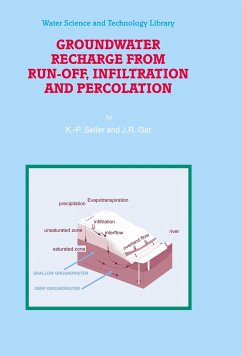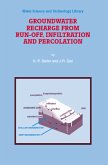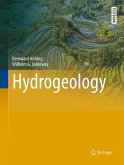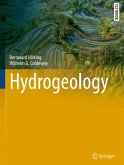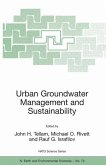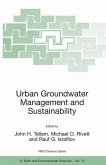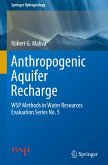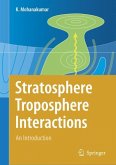Groundwater constitute the most important reservoir of available clean water. Due to its overexploitation, some anthropogenic mismanagement on the surface and the overloading of the cleanup potential of subsurface, many of the groundwater systems used for water supply are in jeopardy. The problem is very severe in dry-lands, but also in urban, industrial, agricultural and traffic areas.
This book first discusses the recharge fluxes relating both to the quantity and quality of groundwater. In order to face the threats to the water supply and to be able to maintain a sustainable water management policy, detailed knowledge is needed in between others on the surface to subsurface transformation link in the water cycle. Secondly, the presentation and comparison of both the traditional and modern approach to determine groundwater recharge is discussed. The traditional approach to determine groundwater recharge, is based on water balance estimates and hydraulic considerations, which yield instantaneous values at best but do not integrate the totality of recharge pathways in time and space. In contrast, environmental tracers do integrate these factors. Finally, the fate of groundwater recharge in the subsurface by hydraulic and geologic means is discussed in detail, in order to stimulate adapted groundwater management strategies and to better assess consequences of climate changes on groundwater resources as a whole.
Audience
This book will be of interest to hydrologists, hydro-geologists, engineers, geographers, agronomists, soil scientists, groundwater modellers, environmental physicists, limnologists
This book first discusses the recharge fluxes relating both to the quantity and quality of groundwater. In order to face the threats to the water supply and to be able to maintain a sustainable water management policy, detailed knowledge is needed in between others on the surface to subsurface transformation link in the water cycle. Secondly, the presentation and comparison of both the traditional and modern approach to determine groundwater recharge is discussed. The traditional approach to determine groundwater recharge, is based on water balance estimates and hydraulic considerations, which yield instantaneous values at best but do not integrate the totality of recharge pathways in time and space. In contrast, environmental tracers do integrate these factors. Finally, the fate of groundwater recharge in the subsurface by hydraulic and geologic means is discussed in detail, in order to stimulate adapted groundwater management strategies and to better assess consequences of climate changes on groundwater resources as a whole.
Audience
This book will be of interest to hydrologists, hydro-geologists, engineers, geographers, agronomists, soil scientists, groundwater modellers, environmental physicists, limnologists

